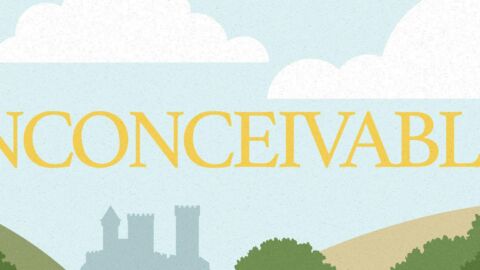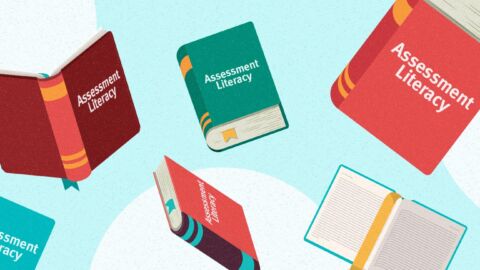Dr. Carla Evans is a Senior Associate at the National Center for the Improvement of Educational Assessment (Center for Assessment). She is actively engaged with projects that attempt to bridge the gap between classroom assessment and large-scale assessment.
Carla supports states in designing and implementing assessment reforms, especially those that rely on performance assessments. For example, she worked with others from the Center for Assessment as the lead technical consultants on New Hampshire’s Performance Assessment of Competency Education (PACE) innovative assessment system, with the Michigan Assessment Consortium on classroom performance assessments, and currently with the Hawai‘i Department of Education on culturally responsive performance assessments and implementation supports. She is also working in multiple states to support the design and implementation of balanced assessment systems with a particular focus on scaling and sustaining assessment literacy initiatives with K-12 teachers and school/district leaders.
Carla’s research focuses on the impacts and implementation of assessment and accountability policies on teaching and learning. She is especially interested in policy research related to balanced assessment systems, culturally responsive assessment, performance-based assessments, and assessment literacy.
Carla is publishing two books in 2024: one volume with Scott Marion, Understanding Instructionally Useful Assessment, and an NCME volume co-edited with Catherine Taylor, Culturally Responsive Assessment in Classrooms and Large-Scale Contexts: Theory, Research and Practice.
Carla has published numerous articles in peer-reviewed journals and regularly presents her research at the American Educational Research Association (AERA), National Council for Measurement in Education (NCME), and the National Conference on Student Assessment (NCSA). Carla is also a frequent blogger on the Center's website and has created a set of open-source Classroom Assessment Literacy modules as well as resources on assessing 21st century skills.
Carla received a Ph.D. from the University of New Hampshire with a concentration in Assessment, Evaluation, and Policy. She was awarded numerous honors, including AERA Division H’s Outstanding Dissertation Award, UNH Dissertation Year Fellowship, UNH Graduate Research Assistantships, and UNH Education Department Outstanding Graduate Student Paper Award. Carla serves on AERA’s Classroom Assessment SIG leadership team and as an adjunct professor of education at the University of New Hampshire. Carla began her career as an elementary classroom teacher for almost a decade.
Recent and Relevant Publications
Evans, C.M. & Marion, S.F. (2024). Understanding Instructionally Useful Assessment. Routledge.
Evans, C.M. & Taylor, C. (Eds., in press) Culturally Responsive Assessment in Classrooms and Large-Scale Contexts: Theory, Research, and Practice (NCME Edited Volume). Routledge.
Evans, C. M. (2023). Applying a culturally responsive pedagogical framework to design and evaluate classroom performance-based assessments in Hawai‘i. Applied Measurement in Education.
Stone, A. & Evans, C. M. (2023). Keeping up the PACE: Evaluating grade 8 student achievement outcomes for New Hampshire’s innovative assessment system. Applied Measurement in Education.
Evans, C. M. (2023). Applying a Contrasting Groups Standard Setting Methodology to a Large-Scale Performance Assessment Program Used for Accountability. Practical Assessment, Research, and Evaluation, 28(1).
Dadey, N., Evans, C. M., & Lorié, W. (2023). Through-year assessment: Ten key considerations. The National Center for the Improvement of Educational Assessment.
Wellberg, S. & Evans, C. M. (2022). Assumptions Underlying Performance Assessment Reforms Intended to Improve Instructional Practices: A Research-Based Framework. Practical Assessment, Research, and Evaluation, 27(23).
Evans, C. M., Thompson, J., & Landl, E. (2020). Making sense of K-12 competency-based education: A systematic literature review of implementation and outcomes research from 2000 to 2019. Journal of Competency-Based Education, 5(4).
Evans, C. M., Graham, S., & Lefebvre, M. (2019). Exploring K-12 competency-based education implementation in the Northeast states. NASSP Bulletin.
Evans, C.M.(2019). Effects of New Hampshire’s innovative assessment and accountability system on student achievement outcomes after 3 years. Educational Policy Analysis Archives
Evans, C.M., & Lyons, S. (2017). Comparability in balanced assessment systems for state accountability. Educational Measurement: Issues and Practice. Educational Measurement: Issues and Practice.
Blog Posts Authored by Carla Evans

Instructionally Useful Assessments: Don’t Tell Us—Show Us
Education leaders and vendors claim that many assessments are “instructionally useful.” Such claims must be highly specific, and supported by evidence.
Read More
Assessment Data Masquerading as Instructionally Useful Information
Which kinds of tests provide information that helps teachers adjust their instruction? We outline 10 key features of instructionally useful assessments
Read More
Stop Trying to Use Commercial Interim Tests for Instructional Purposes
The concept of “strategic abandonment” sheds light on the appropriate uses of commercial interim assessments. Instructional utility isn’t one of them.
Read More
Consider Backward Assessment Design
If an assessment is meant to help teachers get insight into student learning and adjust their instruction, test designers must start with the end in mind.
Read More
What Happens to Performance Assessment If We Use It for Accountability?
Those who promote using performance assessment for accountability may want to stop and consider exactly what they want to argue for.
Read More
Supporting the Implementation of Formative Assessment
Formative assessment implementation can be both impeded and facilitated, and we take a look at the factors that play into each outcome.
Read More
Classroom Assessment Learning Modules 2.0
We’re offering 23 professional classroom assessment learning modules, an expansion of 7 modules offered at the beginning of the pandemic.
Read More
Can a State Test Inform Instruction?
Using a state test to inform instruction is possible, but has limitations that educators and other stakeholders need to understand.
Read More
2022 Summer Internships: Improving Educational Assessment and Accountability
After two productive but virtual summers, we are looking forward to working side-by-side with our new group of summer interns to support the future of educational assessment and accountability through […]
Read More
Supporting the Improvement of Educators’ Assessment Literacy
Developing Needs-Based Sociocultural Approaches to Professional Development and Assessment Literacy This post is a summary of the main ideas from a symposium focused on educators’ assessment literacy presented at the […]
Read More
Culturally Sensitive, Relevant, Responsive, and Sustaining Assessment
How should culture affect the ways we think about teaching, learning, and assessment?
Read More
Why Have Many (All?) Approaches to Improve K-12 Educator Assessment Literacy Failed to Produce Significant Changes in Teacher Practices at Scale?
Making Teachers Active Agents in Improving Assessment Literacy Most of us would agree that if the problem of improving K-12 educator assessment literacy has not been solved, it is not […]
Read More
A Culturally Responsive Classroom Assessment Framework
Guidance for the design and evaluation of classroom formative and summative assessments.
Read More
Following Their Lead: Conversations About Innovative Assessment
Discussions with State Leaders Approved to Implement Innovative Assessment Demonstration Authority Pilots Five states have been approved to implement innovative assessment pilots as part of the Innovative Assessment Demonstration Authority (IADA) under […]
Read More
Enhancing the Impact of Performance Assessments on Instruction
A Research-Based Framework Monitoring the Use of Performance Assessments to Promote Positive Instructional Change This is the fourth post by one of our 2021 summer interns based on their project and the […]
Read More
What Leads to Positive Changes in Student Learning?
The Relationships Between Instructional Practices and the Instructional Core Regarding Student Learning This is the third post by one of our 2021 summer interns based on their project and the assessment and […]
Read More
2021 Summer Internships: The Future Is Now
Center Staff and Interns Look Toward the Future of Educational Assessment and Accountability As it appears the country is finally turning the corner on the pandemic, we are excited at […]
Read More
Implementing an Innovative State Assessment System While We’re Still Building It
Houston, I Think We Might Have a Problem One definition of insanity is doing the same thing over and over again, and yet expecting different results. Recently, I have been […]
Read More